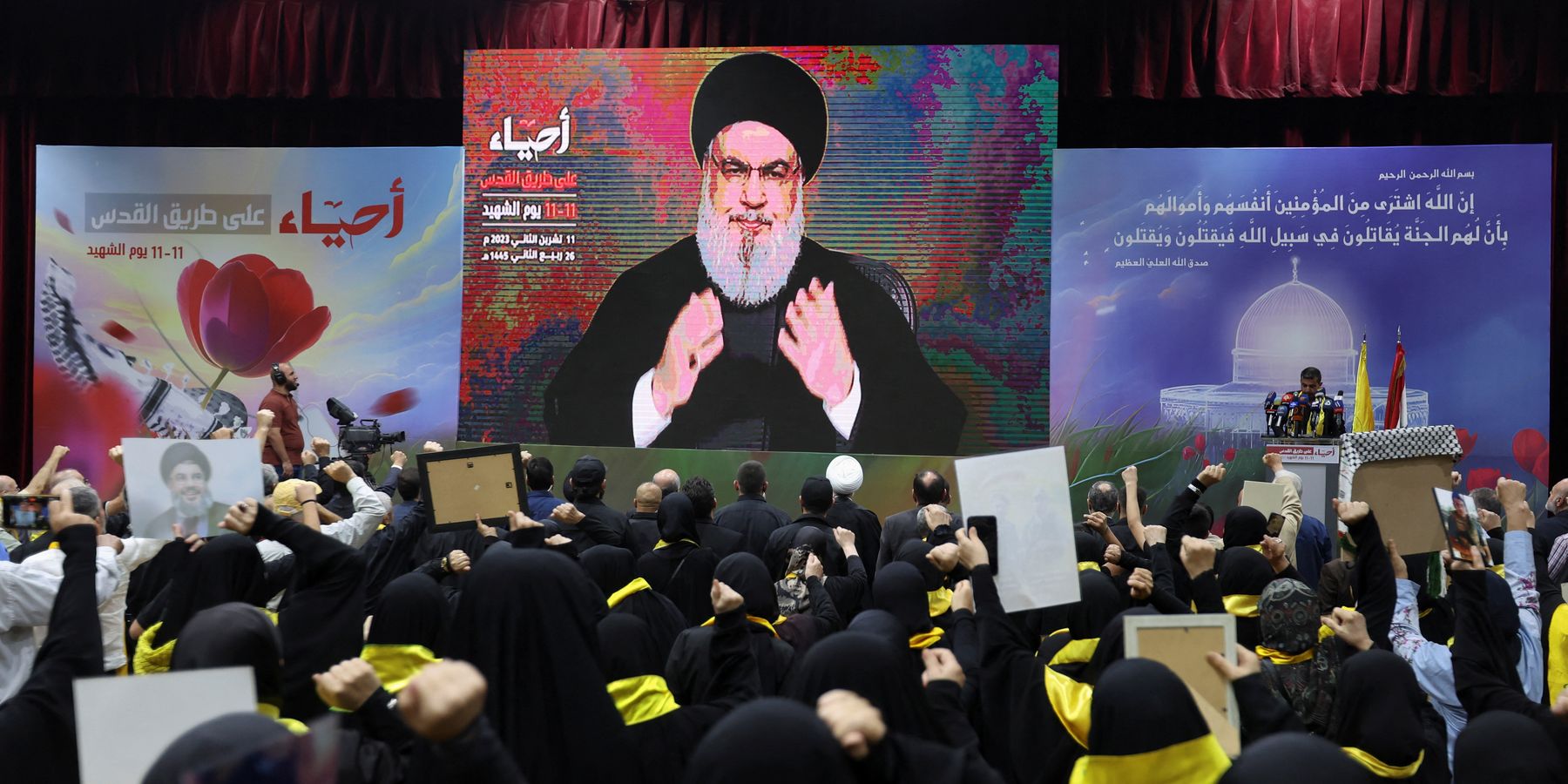With the confirmed assassination of Hezbollah leader Hassan Nasrallah today it is clear now that the entire senior command echelon of Lebanese Hezbollah is dead.
That includes the Radwan commander, in charge of operations against Israel on the ground along the Blue Line, and his key subordinates. Also the top IRGC Quds Force people assigned to Lebanon. Add to this, thousands of Lebanese Hezbollah operatives who rated a company pager are out of action, blind, mutilated or dead.
Meanwhile, Iran’s Islamic Revolutionary Guard Corps’ missile depot and factory in Syria has been destroyed by Israeli commandos. The head of Hamas, Ismail Haniya, was assassinated in Tehran, and his successor is buried alive somewhere in Gaza, his army is kaput and his domain pulverized.
Hamas, Hezbollah, Iran and the Houthi family in Yemen have all attempted to return these favors but failed. Hamas, for obvious reasons, is incapable. Hezbollah’s weak replies raise the question whether Israeli strikes over time have neutered its massive missile and rocket capacity, or its leadership calculated that they had too much to lose if they used it.
And the Houthis have shown just what it means to be a pathetic, tiny actor at the edge of the world.
What went wrong? Well, a number of things, but I think the main problem was a misperception of regional and global attitudes toward their struggle and an utter failure to understand the impact of October 7 on Israeli society and the license that Sinwar’s sadism gave Israel to destroy Hamas, whatever the cost. And of course, the correlation of forces, as strategists used to say, was not in their favor and probably never will be.
Hamas thought that its opening salvo would trigger a multi-front war that would hobble Israel’s military response. Lebanese Hezbollah and the Houthis did respond favorably, if symbolically and, for Hamas purposes, uselessly. Late in the war, Iran launched a barrage of missiles against Israel, but this was staved off by a coalition whose very formation demonstrated Iran’s isolation.
All the resistance parties seemed to think that internecine tensions in Israel prior to Sinwar’s stupid maneuver would hamstring Israel’s ability to counterattack. Instead, as anyone who really understood Israel as Sinwar bragged he himself did, his savage attack unified the country behind a ruthless military and political leadership many Israelis detest on a personal level. Within 24 hours of the attack, the IDF had so many reservists flooding mobilization centers it couldn't supply them all.
And the resistance also seemed to believe that the United States, its allies, and the Global South would rise up and smother Israel with disapproval. They appeared to think that it was 2006, when the U.S. and UN shut down Israeli military operations in Lebanon.
But the IDF had thought a lot about 2006 and concluded that in the next round, Washington was not going to steal defeat from the jaws of victory. Thus there was never any hope for a Gaza ceasefire. And as aging analysts who've seen it all were saying, some South African court rulings were not going to stop the war or shame Israelis for responding as they saw fit for the enormity of October 7.
And then there was Sinwar, who conceived of himself as the Arab Nguyen Giap, and thought that if he killed enough Palestinians, Israel would surrender, But of course Gaza, nothing more than a tiny prison yard, was not North Vietnam with its much larger population, powerful allies, and potent army. Nor was 2023 Israel anything like the fractured and ambivalent United States of 1968. So all Sinwar accomplished was the decimation of a trapped Palestinian population. The rest was beyond his grasp.
What happens now? Israel has demonstrated its tactical prowess. Up to a point, staggering tactical successes can substitute for strategic incompetence, or perhaps just indifference. After all, if one sees oneself in a never-ending war, strategy is beside the point. But now that Israel’s tactical successes have reversed the appalling effects of its strategic intelligence failure — and kept the Saudis, Emiratis and the United States on its side — it might want to reassess its strategic situation with a view to ending its endless war.
- Biden’s mixed messages to Israel are coming home to roost ›
- Cut off the head, get another 'terrorist' | Responsible Statecraft ›
- Iran more vulnerable than ever to Israel attack | Responsible Statecraft ›
- The demise of Yahya Sinwar and his 'big project' | Responsible Statecraft ›
















